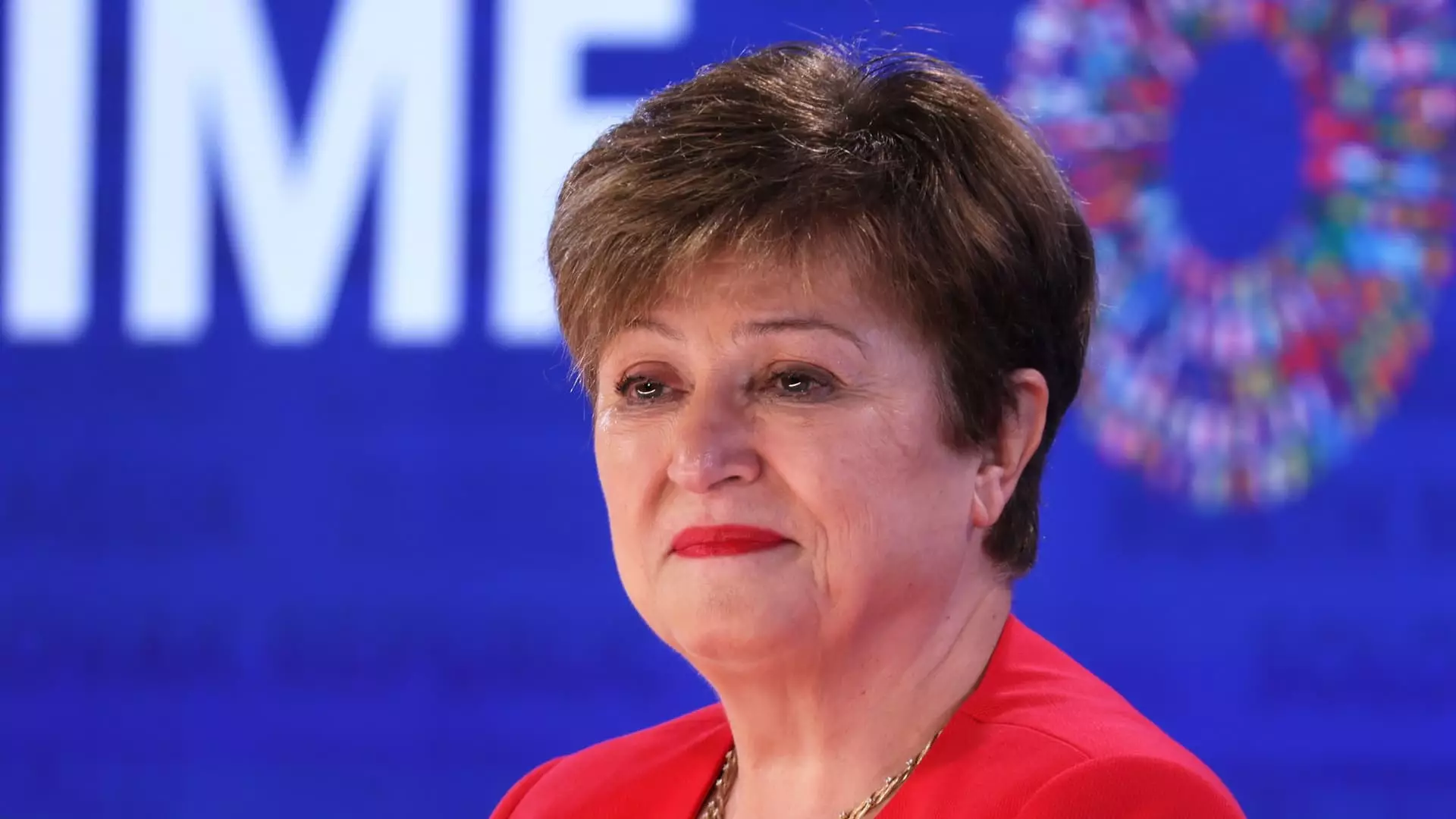In a recent address, Kristalina Georgieva, the Managing Director of the International Monetary Fund (IMF), painted a somber picture of the current global economic landscape. Despite some signs of recovery, the overhang of high debt combined with sluggish growth poses substantial hurdles for economies worldwide. Georgieva’s remarks, delivered during an interview with CNBC, reflect a deep apprehension regarding the sustainability of current economic practices, especially concerning governments’ increasing reliance on borrowing amidst persistently low growth rates.
This has led expert commentators to question whether countries can continue to manage their fiscal responsibilities effectively while pursuing recovery goals. Georgieva’s warning that “it’s not yet time to celebrate” indicates that the challenges ahead are still formidable. The intertwining issues of high debt and low growth not only hamper economic trajectories but threaten to destabilize social fabrics as well, as growing financial strains are felt by ordinary citizens across the globe.
One of the significant factors exacerbating the situation is the uneven nature of inflation control across different economies. Georgieva acknowledged the commendable efforts of major central banks in curbing inflation rates, yet she pointed out that such successes are not universal. In several regions, populations continue to suffer from the burden of rising prices—a scenario contributing to growing discontent and unrest.
The sentiment of consumers is crucial here; with increased living costs, many people feel disenfranchised, sparking frustration and anger that could lead to broader societal issues. Georgieva’s emphasis on the real-world impact of these economic conditions stresses the need for tailored, region-specific solutions to help alleviate the mounting pressures faced by citizens around the world.
As global economic dynamics evolve, Georgieva cautioned that international trade may no longer serve as the growth engine it once did. This prognosis arises from a notable increase in protectionist policies adopted by leading economies. The advent of tariffs by the United States and the European Union against China, in response to perceived unfair trade practices, illustrates a growing shift towards isolationist economic strategies.
Georgieva noted a broader sentiment emerging across various nations—whereby individuals feel let down by globalization. Job losses and community neglect are notable grievances, fueling calls for national security-oriented policies. The geopolitical tensions, particularly those arising from the pandemic and conflicts such as the ongoing war in Ukraine, heighten security concerns, resulting in a climate of skepticism towards globalization itself.
In earlier comments, Georgieva underscored the potential fallout from protectionist measures. The IMF has consistently warned that such tariffs can be counterproductive, impacting domestic businesses and consumers more severely than intended. Georgieva urged policymakers to weigh carefully the repercussions of implementing restrictive trade measures, especially given their tendency to stifle international development and exacerbate economic disparity.
The IMF’s role in providing analysis on the interconnected effects of such policies is critical. It underscores the importance of cooperative strategies over punitive measures that often backfire. This call for measured responses to trade disagreements emphasizes the IMF’s broader mission of fostering stable and equitable global economic relations.
Looking to the future, Georgieva’s insights culminate in a call for collective action among global leaders to confront the multifaceted challenges. The upcoming IMF and World Bank meetings will serve as a crucial platform for discussing pressing topics such as poverty alleviation and the transition to green energy. These discussions are pivotal for forging a path toward resilience against economic shocks and ensuring sustainable long-term growth.
While the world has made strides toward recovery, the lessons from high debt and inflation cannot be overlooked. Addressing these realities with a focus on cooperation rather than division will ultimately determine the success of future economic policies. As Georgieva aptly noted, the need for improvement in areas of low growth and high debt remains urgent—a clarion call for governments worldwide.


Leave a Reply